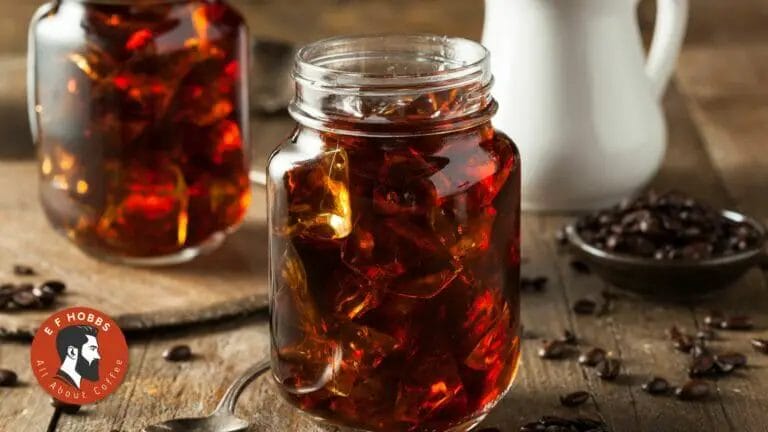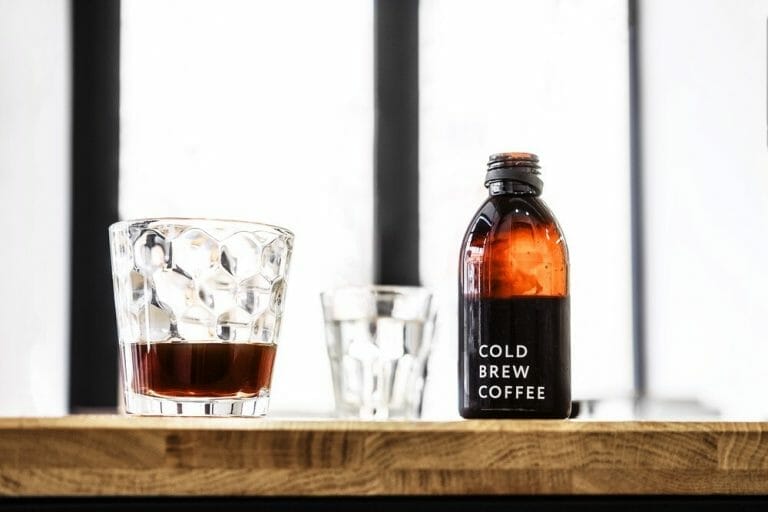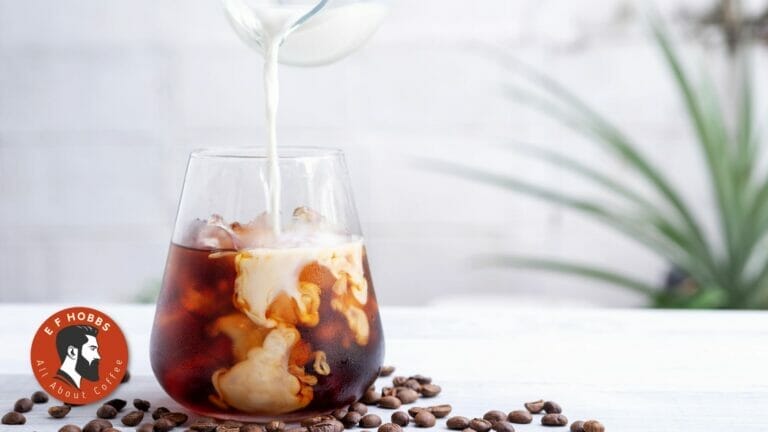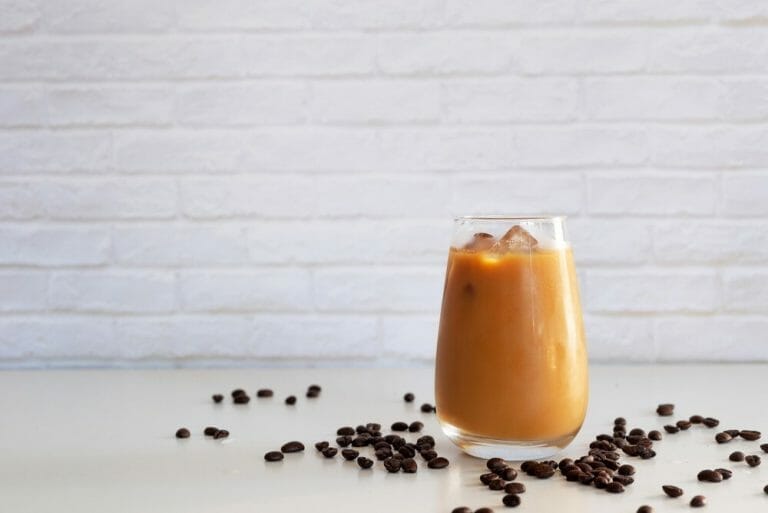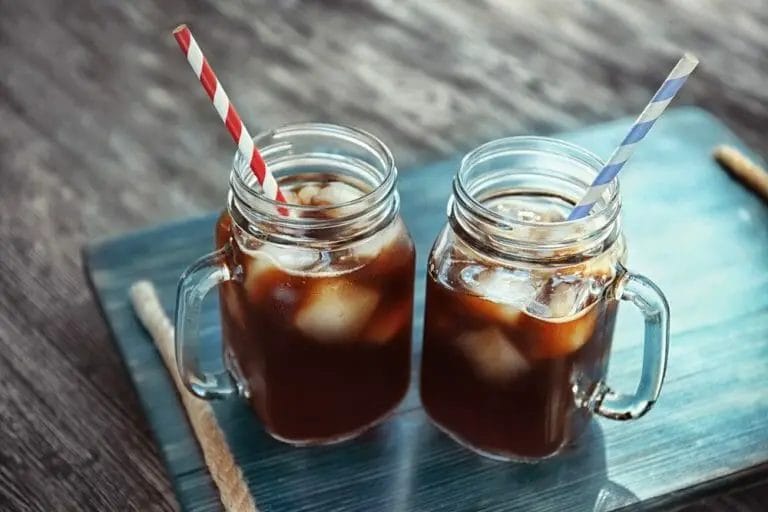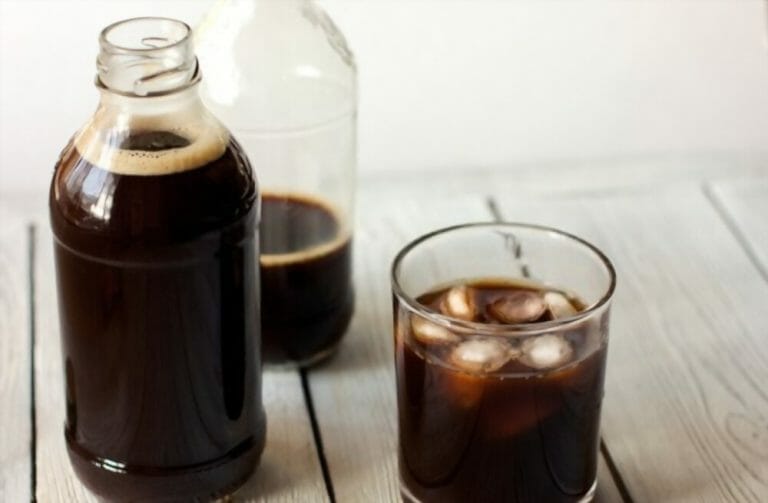Does Cold Brew Use More Coffee? Find Out Now!!!
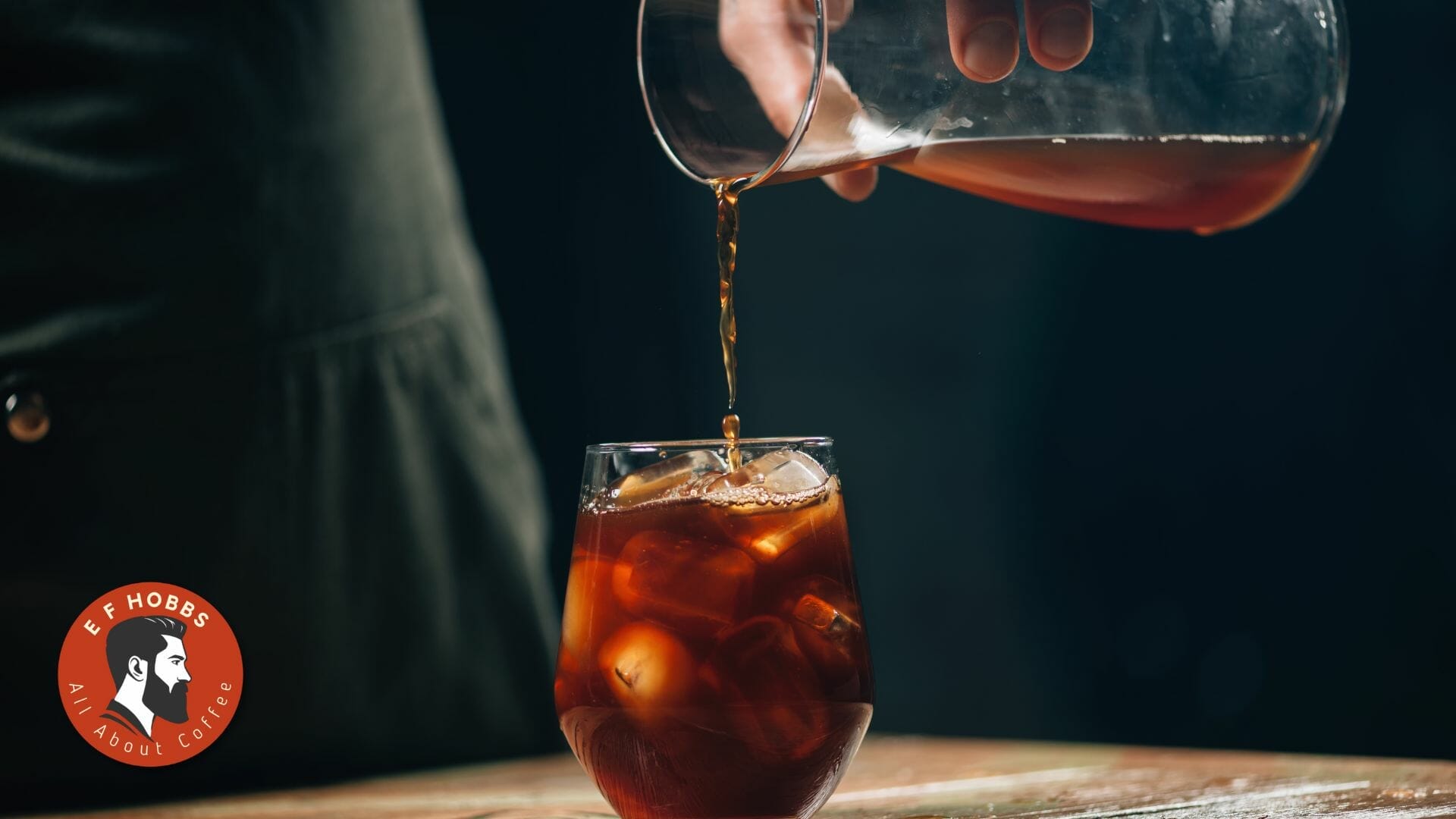
The answer is yes, cold brew typically requires a higher amount of coffee grounds to water ratio compared to hot-brewed coffee.
This is due to the fact that cold water doesn’t extract flavors from the beans as efficiently as hot water does, resulting in a weaker taste if not enough coffee is used. But why exactly is there a need for more coffee when making cold brew?
And how does this affect one’s overall consumption of caffeine and other compounds found in coffee?
These are just some of the questions that will be explored in this article about whether or not cold brew uses more coffee.
Cold Brew’s Higher Coffee-to-Water Ratio
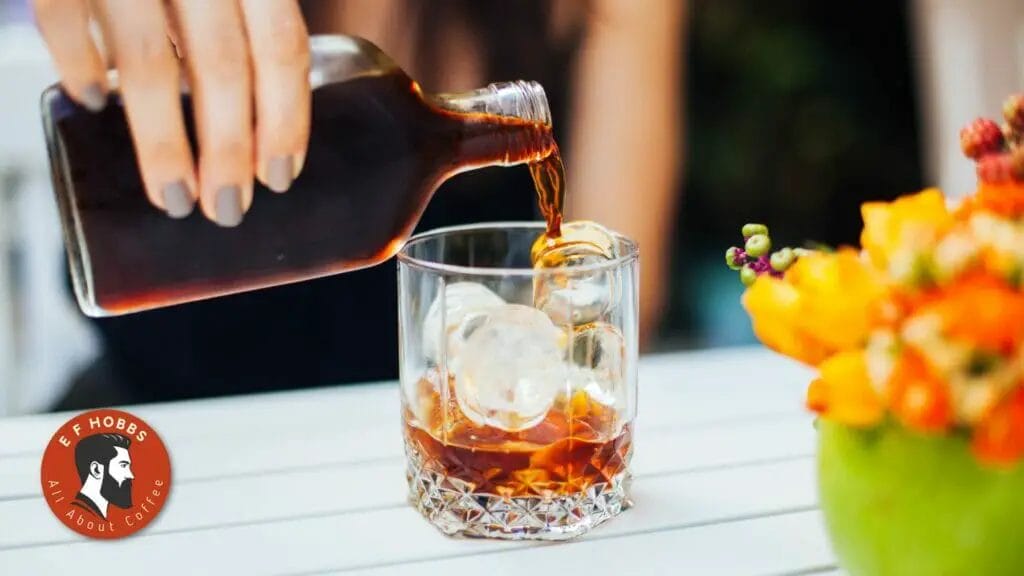
The higher ratio of coffee to water in cold brew results in a bolder and more concentrated flavor.
Cold brew requires much coffee compared to traditional brewing methods due to the higher coffee-to-water ratio.
In fact, it typically uses twice as much coffee grounds as hot brewed coffee. The reason for this is that cold water doesn’t extract coffee flavor as quickly as hot water does, so more time and more grounds are needed to achieve the desired strength.
Despite using a larger amount of coffee, the end result of cold brew concentrate can be diluted with water or milk to create a drinkable beverage.
This dilution can actually make cold brew a cost-effective option since it extends the life of the concentrate and allows for multiple servings from one batch.
Dilution of Cold Brew Concentrate
Get ready to be amazed at how much flavor can be packed into just a small amount of cold brew concentrate.
Cold brew concentrate is created by steeping coarsely ground coffee in cold water for an extended period of time, resulting in a highly concentrated coffee liquid that is much stronger than traditional hot brewed coffee.
By diluting the concentrate with water or milk, it becomes drinkable and provides a deliciously smooth and flavorful beverage.
Diluted cold brew has become increasingly popular due to its ability to be customized based on personal preferences.
Some people prefer their diluted cold brew to have a 1:1 ratio (equal parts concentrate and water), while others prefer it more diluted with up to 4 parts water per 1 part concentrate. Ultimately, the ratio depends on the strength of one’s preference for coffee flavor.
| Ratio | Parts Water | Parts Concentrate |
|---|---|---|
| 1:1 | 1 | 1 |
| 2:1 | 2 | 1 |
| 3:1 | 3 | 1 |
| 4:1 | 4 | 1 |
However, it’s important to note that diluting the cold brew will ultimately increase the overall volume of liquid consumed, but not necessarily increase the amount of coffee used in making the initial concentrate.
As we explore factors influencing cold brew coffee-to-water ratio, it’s important to understand how dilution plays a role in creating this unique beverage.
Factors Influencing Cold Brew Coffee-to-Water Ratio
When comparing cold brew and hot-brewed coffee consumption, it’s important to note that both methods have their unique benefits and drawbacks.
| Factor | Cold Brew | Hot-Brewed |
|---|---|---|
| Ground Coffee | Coarsely ground coffee is recommended for a smoother and less bitter taste. | Finely ground coffee is recommended for a stronger and more robust taste. |
| Water Quality | Filtered water is best to avoid any impurities that may affect the taste of your coffee. | Tap water is usually used for hot-brewed coffee. |
| Steeping Time and Temperature | Longer steeping time produces a stronger concentrate, while refrigerating during the steeping process results in a smoother flavor. | Shorter steeping time and higher temperature produce a stronger and more robust taste. |
| Personalization | Understanding the factors that influence the cold brew coffee-to-water ratio is important to personalize it to your preference. | Hot-brewed coffee is easier to personalize by adjusting the amount of ground coffee and water used. |
Comparing Cold Brew and Hot-Brewed Coffee Consumption
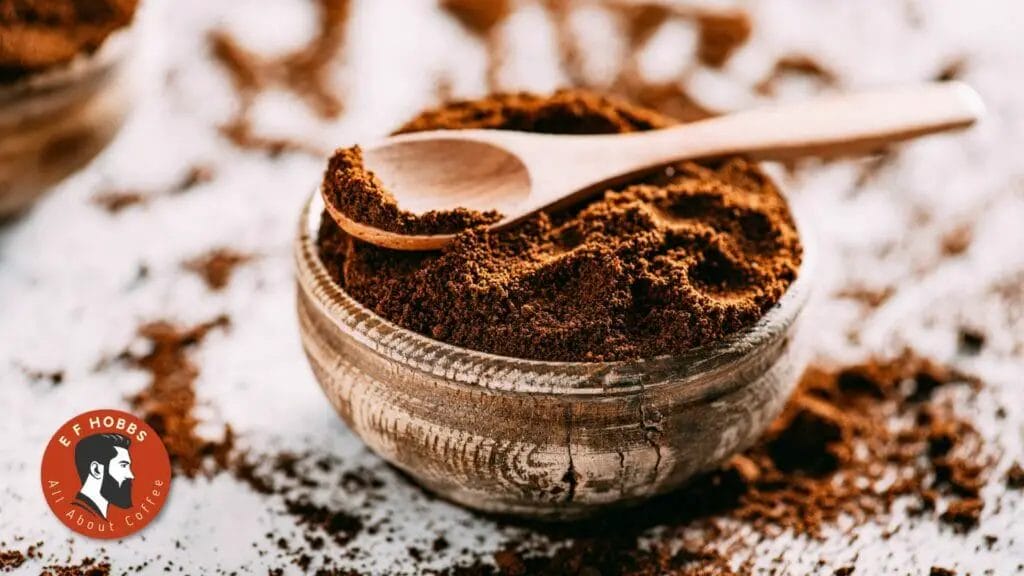
If you’re looking for a way to consume caffeine without feeling like your heart is about to jump out of your chest, comparing the benefits and drawbacks of hot-brewed and cold brew coffee can give you some insight into which method will work best for you.
While both methods produce coffee with similar caffeine content, there are differences in consumption that may affect how much coffee is needed.
Here’s a comparison of cold brew and hot-brewed coffee consumption:
- Cold Brew: Due to its concentrated nature, cold brew typically requires less volume per serving than hot-brewed coffee.
- Hot-Brewed Coffee: Because it’s brewed with heat, hot-brewed coffee tends to have more water content which means larger volume per serving.
- Caffeine Content: Both methods can produce similar levels of caffeine but cold brew has slightly higher levels due to its longer steeping time.
- Taste Profile: Cold brew has a smoother taste profile that emphasizes the sweetness of the beans while hot-brewed coffee tends to highlight the acidity and bitterness of the beans.
- Brewing Time: Hot-brewed coffee takes significantly less time than cold brew which can take up to 12 hours or more depending on strength desired.
Overall, when it comes down to choosing between cold brew and hot-brewed coffee for your daily caffeine fix, it ultimately depends on personal preference.
While both methods have their own unique benefits, it’s important to experiment with different brewing techniques until you find one that works best for you.
FAQs
Conclusion
In conclusion, the answer to the question “does cold brew use more coffee?” is a resounding yes. If you drink cold brew, you’ll find that it typically calls for a higher coffee-to-water ratio than traditional hot-brewed coffee or other iced coffee methods, which means it uses more coarsely ground beans per batch.
Fresh beans, especially those with a medium dark roast, are usually preferred for a cold brew recipe.
The result? A ready to drink beverage with cold brew’s roastiness that’s markedly different from the warming heat of the resulting hot coffee, whether it’s a drip coffee or pour over coffee.
Moreover, because the cold brew concentrate is diluted with water or milk before drinking – an unusual drinking experience compared to drinking room temperature beer or coffee you drink straight – this can also lead to increased overall consumption of coffee.
The better cold brew often takes about a week to prepare and can be stored for up to two weeks in a carafe filled with the brew.
However, it’s important to note that there are several factors that can influence the coffee-to-water ratio in cold brew, such as the type of beans used and the brewing method employed.
Whether you use a French press or a slightly finer grind with a paper filter, your choices will determine how much caffeine is in your cold brew.
Ultimately, whether or not cold brew uses more coffee will depend on individual preferences and habits.
Some coffee lovers may reject cold brew because of its strong, concentrated nature, and stick with their trusty French press or hot-brewed cup of joe.
Regardless of personal preference, one thing is certain: understanding how different brewing methods affect our caffeine intake can help us make informed choices about our daily consumption.
In the specialty coffee industry, we see a rise in people who love cold brew for its smooth flavor profile, low acidity, and the most unusual drinking experience it offers.
As the old saying goes, “there’s no accounting for taste.” So while some may argue that cold brew is worth using extra grounds for its drink’s smooth, low acid qualities and the unique experience of drinking a natural coffee, others may prefer the light roast of their regular hot coffee.

